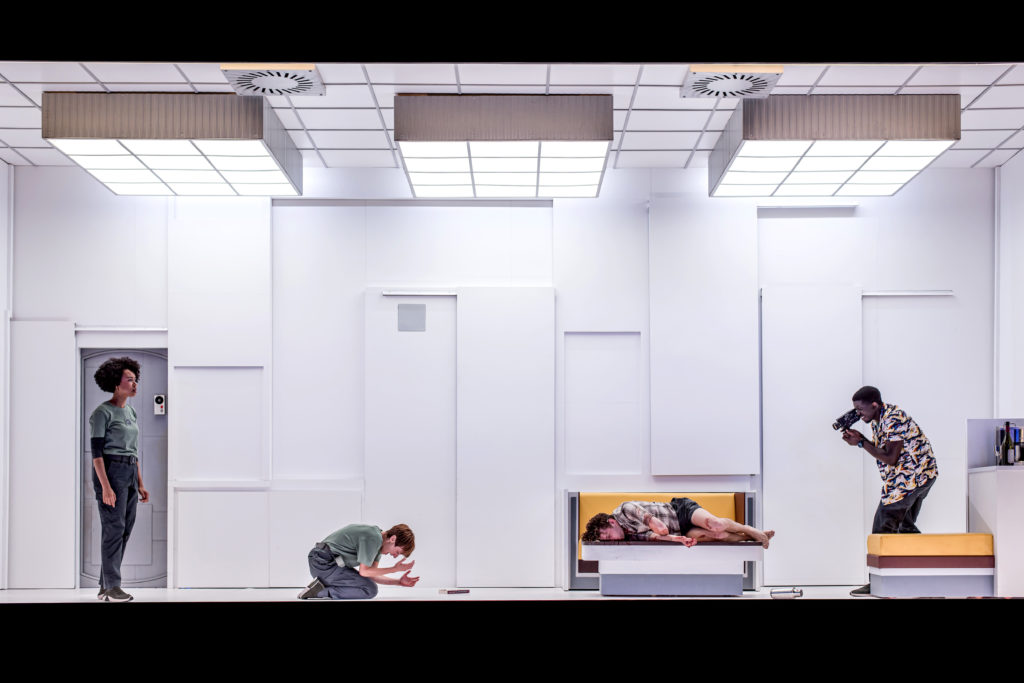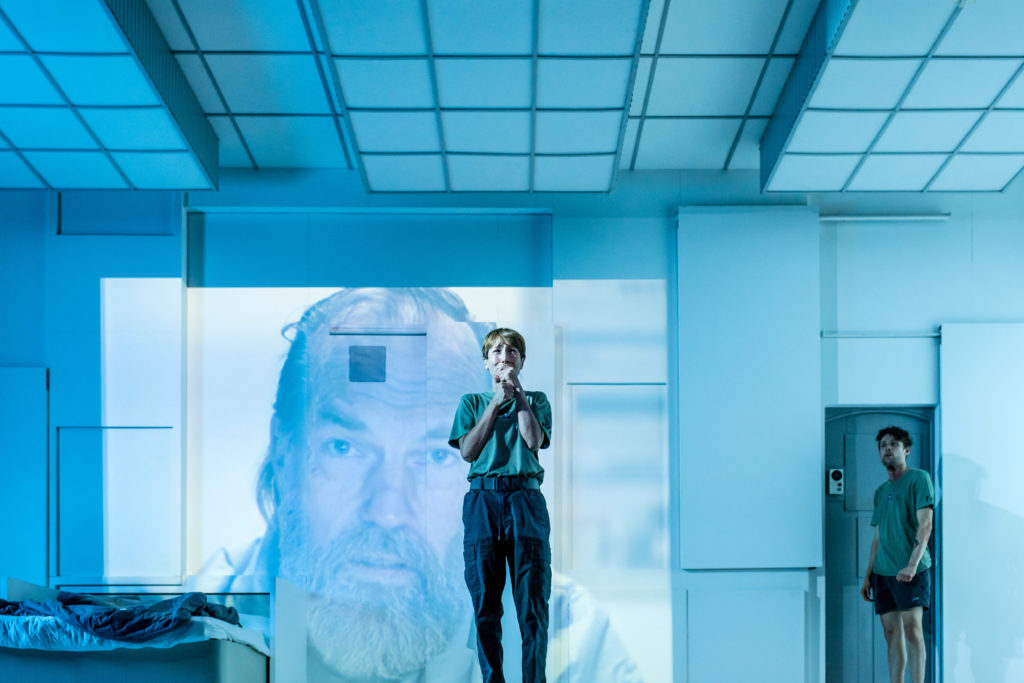
Solaris
This is the first time that Solaris has been brought to the stage, and David Greig’s treatment based on the novel by Stanisław Lem is stunning, fresh and resonant.
Science fiction allows for rules to be broken and conventions to be usurped, and this production certainly defies the norm, and any expectations you may bring based on knowledge of the book or film adaptations.
The set design is stunningly effective, and the sound design and intermittent cinematic masking of the stage with overlays of abstract monochrome images and deep rumbling emphasises the brooding, unknowable nature of the mysterious planet.
The most resonant performance comes from an actor who is never physically on stage, through the larger than life projections in shaky VHS format of Hugo Weaving as Gibarian, as he sends his messages from beyond the grave to psychologist Kris, superbly played by Polly Frame.
And there are also another two ‘unreal’ characters, sent by the planet to haunt the scientific crew of the space station who have been sent to study the planet, in the shape of a silent child, and the figure of Ray.
Ray is an impossible recreation of Kris’ former lover, and is central to the unfolding drama as Kris throws herself first into studying him, and then into falling in love with him again. This is about loneliness, and love, and the central irony of how, by giving in to love, Kris has to remain alone and isolated from the crew.
The other members of the crew, Sartorius and Snow, are affected differently by their experience of Solaris, with Jade Ogugua trying desperately not to acknowledge the significance of why a child has been sent to visit the ship. Fode Simbo as Snow seeks to bury his feelings through almost maniacal scientific study and obsessive recording of what takes place.
In the end, Snow and Sartorius follow the logic of their heads to return to earth, and Kris follows her heart to remain with the planet, and Ray. Ray himself becomes more human, but more fractured and self-destructive as he learns about his ‘own’ history.
This is all magnificently staged by Hyemi Shin and directed by Matthew Lutton, and Paul Jackson’s lighting is mesmerising as it evokes the unknown external entity that is this strange, ancient, and apparently sentient planet.
One leaves the theatre dwelling on what love, loneliness and isolation does to human beings, and how, if your past suddenly confronts you years later, it is both terrifying and, if you allow it, liberating.
Lem’s book was sometimes dense and read like a horror story. Tarkovsky’s 1972 film was elegaic, minimal, and dreamlike. Soderbergh’s 2002 film was often more like a romance. David Greig’s stage production in 2019 is a quite different thing: it is a very human journey to a new state of mind.
4 stars ★★★★
12 September - 5 October 2019
£10 PREVIEWS, 7.30pm
Thursday 12, Friday 13 September
Preview tickets on sale from 12 August
EVENINGS, 7.30pm
Tuesday - Saturday
£16 - £33
MATINEES from 18 September, 2pm
Wednesday and Saturday
£14 - £29
Running time: Approximately 2 hours and 10 minutes including a 20 minute interval.



